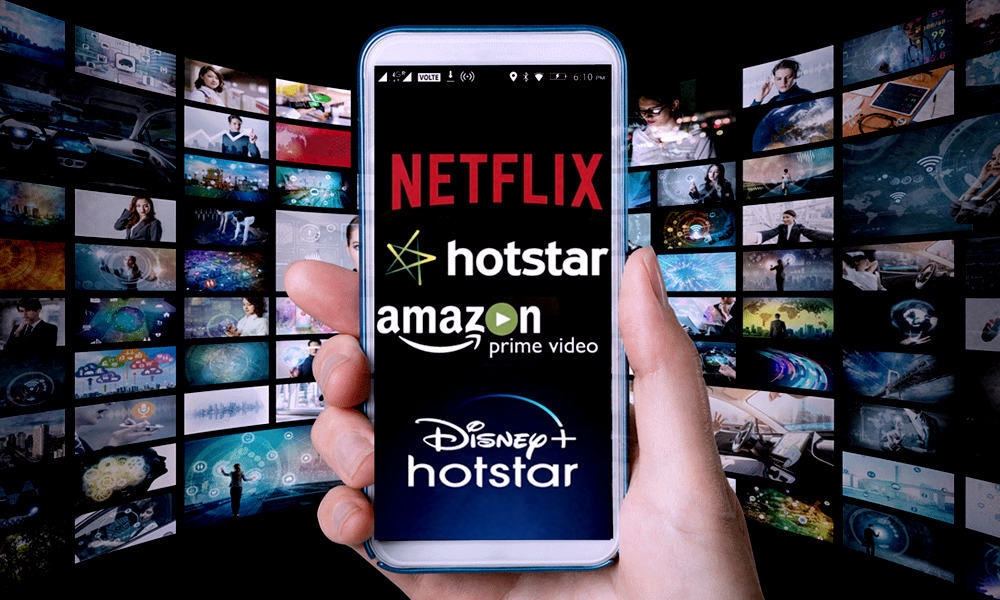
Image Credits: EconomicTimes
"Restrictions Only If Threat To Sovereignty Of India": Centre Releases Guidelines To Regulate OTT, Digital Media
Writer: Devyani Madaik
A media enthusiast, Devyani believes in learning on the job and there is nothing off limits when it comes to work. Writing is her passion and she is always ready for a debate as well.
India, 25 Feb 2021 11:16 AM GMT
Editor : Shubhendu Deshmukh |
Shubhendu, the quint essential news junky, the man who loves science and politics in equal measure and offers the complete contrast to it by being a fan of urdu poetry as well.
Creatives : Abhishek M
" An engineer by profession, Abhishek is the creative producer of the team, graphic designing is his passion and travelling his get away. In more ways than one, he makes the content visually appealing."
Union Ministers Ravi Shankar Prasad and Prakash Javadekar welcomed social media platforms to carry out their businesses in India but also emphasised the need to regulate these platforms.
The Ministry of Electronics and Information Technology (MeITY), on Thursday, February 25, announced draft guidelines for Over the Top (OTT) streaming sites, social media and digital media companies.
Briefing the media, Union Ministers Ravi Shankar Prasad and Prakash Javadekar welcomed social media platforms to carry out their businesses in India but also emphasised the need to regulate these platforms.
3-Tier Mechanism For Digital Media, OTT Platforms
- The government has called for a 3-tier grievance redressal system for the news sites and OTT platforms. The platforms are required to provide a portal where people can address their concerns.
- The platforms are required to disclose the details of where and how the content is being published. "We are not mandating registration, we are seeking information," Javadekar said.
- Self-regulation: Streaming services are directed to have a self-regulation body, which will be headed by a retired Supreme Court or High Court judge or eminent personality in the field. If this body believed that the content violates the law, it would be empowered to send the content to a government-controlled committee for blocking orders to be issued.
- Self-classification of age-related content: OTT platforms will require to self-classify their movies and content based on age. The contents must be age-based categories - U (Universal), U/A 7+, U/A 13+, U/A 16+, and A (Adult). They are expected to enable access control mechanisms, including parental locks, content for those over 13, and ensuring compliance that children don't access it.
- Oversight Mechanism: The I&B Ministry will formulate an oversight mechanism. It will publish a charter for self-regulating bodies, including Codes of Practices, and establish an Inter-Departmental Committee for hearing grievances.
- Digital media portals must refrain from spreading misinformation and fake news.
- Digital Media Ethics code relating to digital media and OTT platforms to be administered by the Ministry of Information and Broadcasting.
- Digital news publishers are required to observe the Norms of Journalistic Conduct of the Press Council of India and the Programme Code under the Cable Television Networks Regulation Act.
Javadekar clarified that the classification of the content does not mean bringing any censorship to the platforms. "There has to be a mechanism of parental lock and ensuring compliance with the same. Platforms like Netflix already have an option for the parental lock," he said.
The minister said that television media follows program codes under the Cable Television Networks Regulation Act, but there are no rules for the OTT platforms. "That's why the government thought of creating a level playing field. All media platforms must have the same justice system. That's why digital, print, OTT, TV needs to follow the rules and regulations," he added.
Addressing the media, Javadekar said nearly 50 questions related to OTT platforms were asked in the parliament and the ministry also received several complaints after which the ministry decided to take the next step.
Both the ministers also emphasised the institutional mechanism, which is needed for media freedom. "We have fought for media freedom, it is absolute, but every freedom needs to be responsible freedom."
Responding to the question of the freedom to access the content on these platforms, Ravi Shankar Prasad said that the internet is not a fundamental right in itself. But the fundamental right of freedom and expression under 19(1) can use the internet to excise the right. However, it is subject to 19 (2), which is, reasonable restrictions can be imposed in pursuit of the safety, security and sovereignty of India.
Prasad asked the social media platforms to refrain from having 'double standards', citing the recent Red Fort incident. "If an attack is there on capital hill and social media supported the police action, but for the regressive attack on the Red Fort, the symbol of India's freedom, was not supported, it is plainly unacceptable."
He appreciated the proliferation of social media in India but warned that if they do not abide by the guidelines, provisions in the law will take their course.
Responding to the question if the government intended to include the stakeholders in the conversion regarding the guidelines, Javadekar said he consulted various OTT platforms and held nearly three meetings. "For the digital media platforms, once the number of digital media houses is disclosed, the government will hold discussions," he added.
 All section
All section














